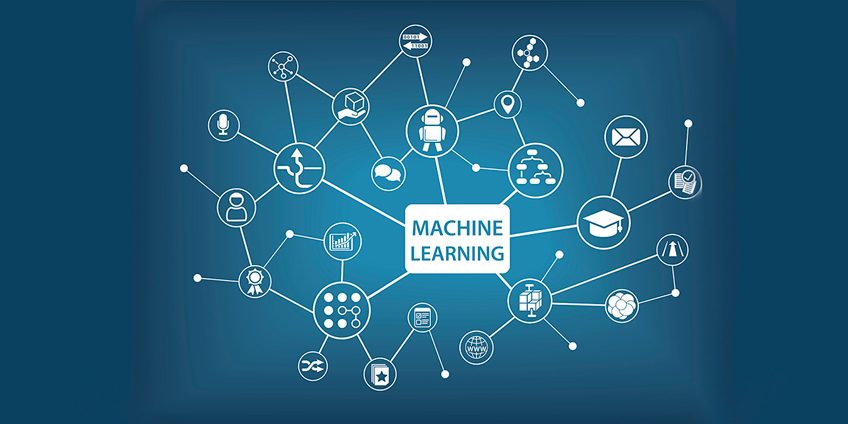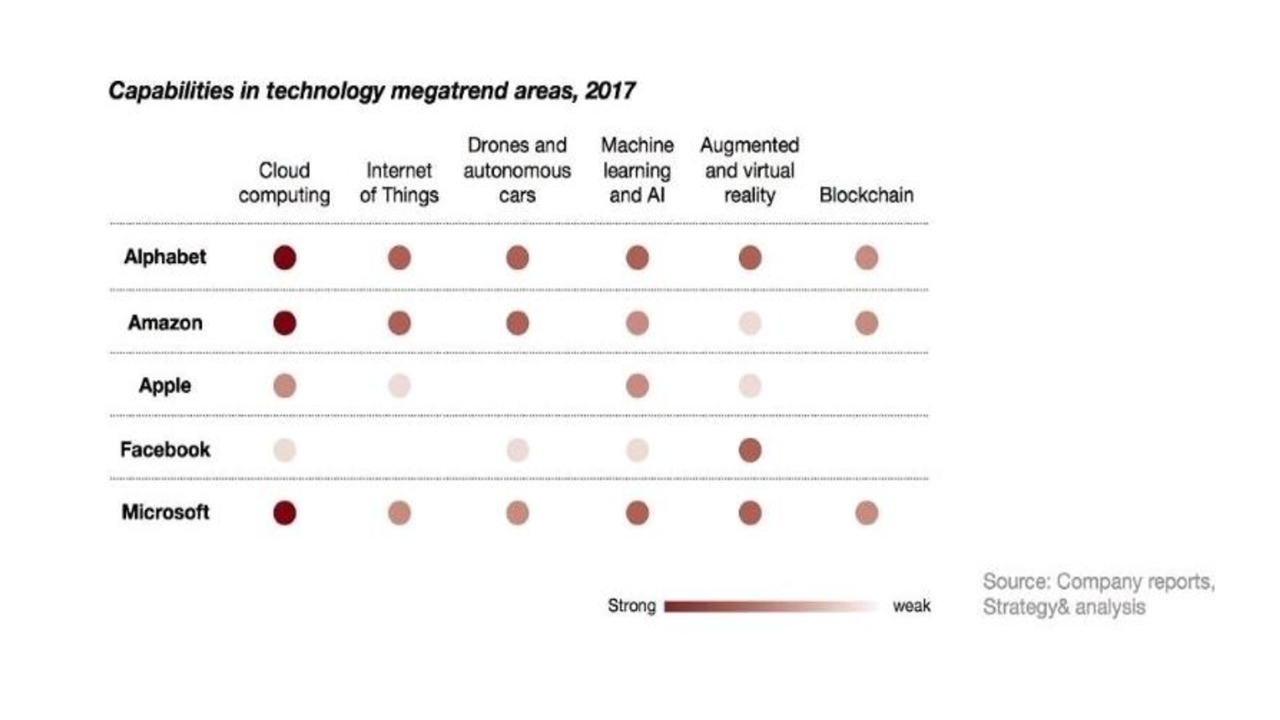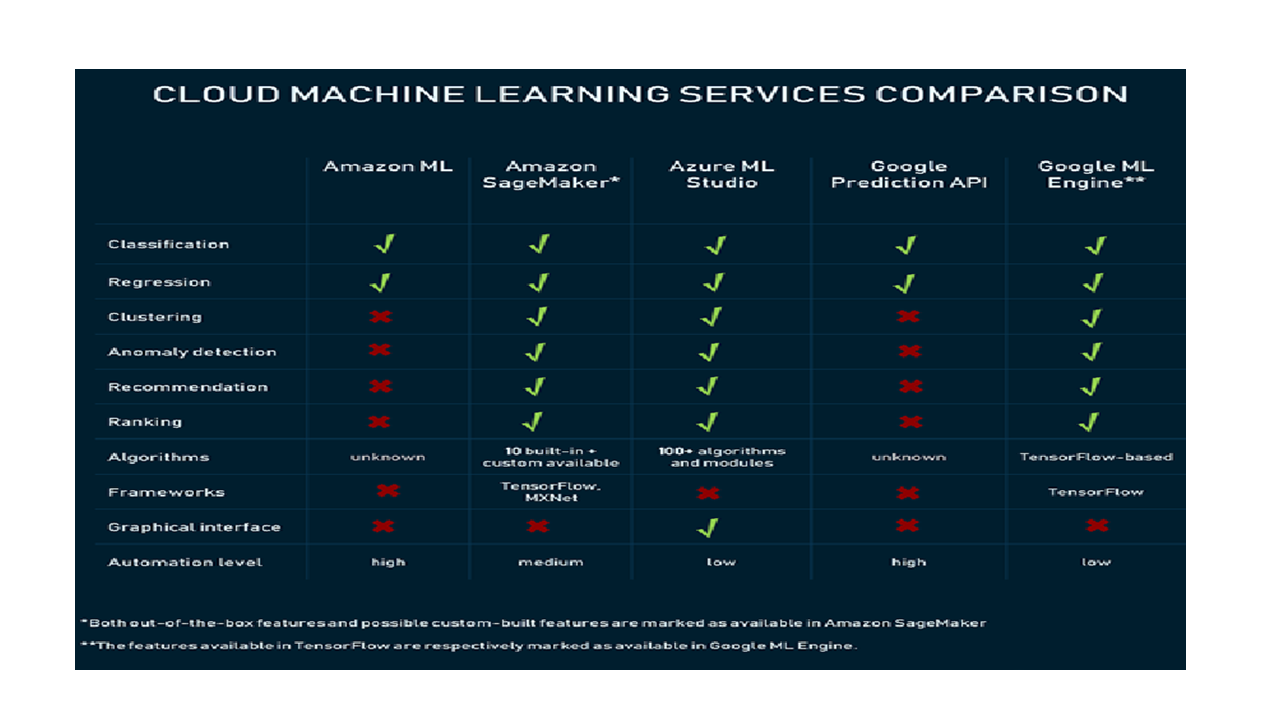With all the hype and today’s results posted on Forbes comparing the giants, I wonder if Machine Learning as a Service (MLaaS) is the way that many businesses in the future will tap into the power of AI-based solutions – especially smaller and mid-size companies who can’t afford to build an internal team focused on AI…?
For most business and technology leaders, machine learning seems close to rocket science, appearing expensive and talent demanding. And here is our attempt to summarize and demystify it (words like Tensor flow, Deep Nets, Boltzman Machines, Bayesian Networks, Neural Networks etc., are still Chinese to a lot).
A Use Case that got us interested
Recently with YourDoctors.Online (a startup conceptualized, developed and commercialized by MarkiTech), we were having significant growth in chat requests for FREE medical opinion. We racked our minds to find out how we could personalize each patients experience and thought it to be a painstaking exercise. We were advised by Dr. Imran Ahmed to step back and breakup this raw data problem into two simple parts – first try and ask patients to segmentise as much as possible and then eventually use TensorFlow and deploy deep learning to recognize different patient concerns.
By using machine-learning cloud services, you can start building your first working models, yielding valuable insights from predictions with a relatively small team. This was our simple machine learning strategy. The next challenge was to look at the best machine learning platforms on the market and consider some of the infrastructural decisions to be made.
Intro to Machine Learning as a Service (MLaaS) – We can bring these experts to you
Simply put, it is automated and semi-automated cloud platforms under which infrastructures such as prediction, data processing and model training and evaluation fall.
Amazon ML services, Azure ML, and Google Cloud AI are some of the most well-known cloud-based MLaaS services. These services three leading cloud MLaaS services that allow for fast model training and deployment with little to no data science expertise.
Amazon Machine Learning Services
Amazon Machine Learning services exist in two different varieties which are 1) predictive analytics and 2) SageMaker.
Predictive analytics using Amazon Machine Learning is perhaps amongst the best currently available in the market as it requires very little human input and picks up the bulk of the work on its own quickly and effectively which makes it the ideal candidate for stressful pressed-for-time situations. The predictions themselves always fall into one of the three categories: binary classification, multiclass classification, and regression. Additionally, predictive analytics using Amazon Machine Learning need not be used by only by individuals who have a background in machine learning methods.
What SageMaker does, on the other hand, is that it provides a simplified version of the work done by another data scientist to allow for a fast-paced process of model building and deployment. Amazon also has the capability to do this for large datasets.
Azure
Azure Machine Learning is the ideal platform for those coming with little experience as well as for those who are well versed data scientists. Azure Machine Learning Service and BotService are the two services that they provide. The former is the one to look at when talking about MLaaS. Unlike what we discussed previously, most of the work must be done manually. Another big feature is the Cortana Intelligence Gallery which is a large library of solutions provided from within the community.
Google cloud machine learning engine
The Google cloud machine learning engine is rather similar to SageMaker and is extremely flexible and meant to serve data scientists with a good amount of experience. It suggests pairing cloud infrastructure with TensorFlow. TensorFlow can be a bit tricky as learning it is a bit of an uphill hike as there is no visual interface.
Google Prediction API has unfortunately not been as successful as they initially had hoped it would be and it is pulled back at the end of this month.
IBM Watson Analytics
The IBM Watson Analytics is yet to reach the stage where the above mention MlaaS services and tools are presently but it does have its advantages. As of now the main strongpoint for IBM Watson Analytics is its ability to visualize and present data to show the various different values in it cross paths. At the moment it is too simple and unidimensional for it to be a top player.
The next move
It’s easy to get lost in the variety of solutions available. They differ in terms of algorithms, they differ in terms of required skillsets, and eventually, they differ in tasks. This situation is quite common for this young market as even the three leading solutions that we’ve talked about aren’t fully competitive with each other. And more than that, the velocity of change is impressive. There’s a high likelihood that you’ll stick with one vendor and suddenly another one will roll out something unexpectedly that matches your business needs.
The right move is to articulate what you plan to achieve with machine learning as early as possible. It’s not easy. Creating a bridge between data science and business value is tricky if you lack either data science or domain expertise.
We at MarkiTech encounter this problem often when discussing machine learning applications with our clients. We can help by offering our custom training, consulting and staff augmentation services. Our approach is to understand the data problem first, simplifying the general problem to a single attribute. Whether it’s the price forecast or another numeric value, the class of an object or segregation of objects into multiple groups, once you find this attribute, deciding the vendor and choosing what’s proposed will be simpler.
In conclusion, if ML-as-a-services isn’t a viable business model for you and you are exploring options then we, at MarkiTech, are here to help. It falls in the gap between data scientists who are going to use open source products and executives who are going to buy tools solving tasks at the higher levels. However, it seems that the industry is currently overcoming its teething problems and eventually we’ll see far more companies turning to ML-as-a-service to avoid expensive talent acquisitions and still possess versatile data tools.










Recent Comments